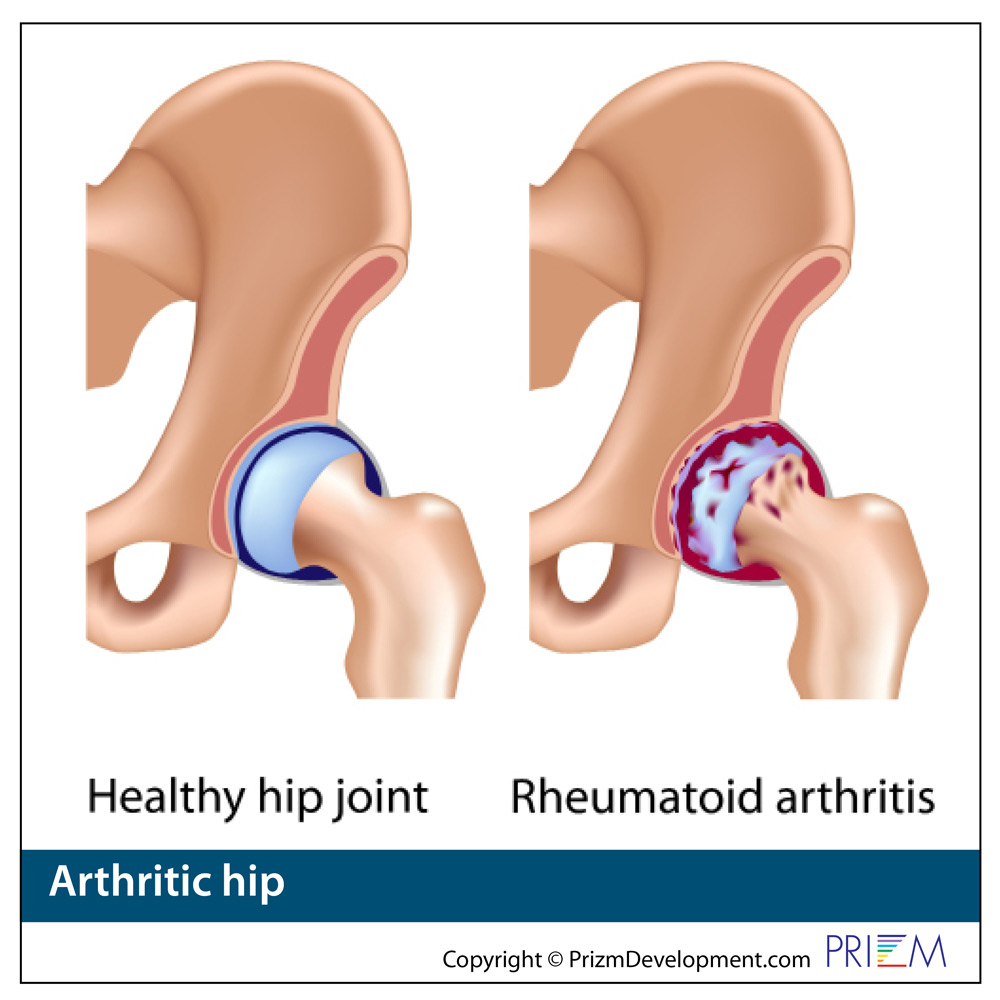Hip Arthritis
![]() The primary cause of hip pain is arthritis, specifically osteoarthritis. Arthritis is the most common chronic condition and is characterized by inflammation of the joints. Common causes of arthritis include wear and tear on the bones and joint cartilage, most often when the body has too much weight to support. This can be caused by carrying heavy loads consistently for years but is more commonly a byproduct of being overweight.
The primary cause of hip pain is arthritis, specifically osteoarthritis. Arthritis is the most common chronic condition and is characterized by inflammation of the joints. Common causes of arthritis include wear and tear on the bones and joint cartilage, most often when the body has too much weight to support. This can be caused by carrying heavy loads consistently for years but is more commonly a byproduct of being overweight.
Common Arthritis Myths
- Only older people have arthritis.
- Arthritis is caused by cold, wet weather.
- Each day is the same for an arthritis patient.
- Arthritis is a minor physical inconvenience.
Osteoarthritis
Osteoarthritis is the most common form of arthritis, affecting over 21 million Americans. Three times as many women suffer from the disease than men.
Osteoarthritis occurs when the covering on the ends of bones gradually wears away, becoming frayed and rough. It typically develops due to many years of use and affects people middle-aged and older. Osteoarthritis targets hands and weight-bearing joints, such as knees, hips, feet and back.
Risk Factors
- Age- 45 yrs or older
- Gender- majority of sufferers are women
- Certain hereditary conditions including defective cartilage and malformed joints
- Joint injuries caused by physical labor or sports
- Obesity
- Diseases that alter normal structure and function of cartilage
Symptoms (usually come on slowly)
- Pain and inflammation
- Pain may develop gradually and feel like a deep ache.
- Swelling and stiffness
- May be worse in the morning and feel better with activity
- Loss of range of motion
- “Sticking” and weakness
- Loose fragments of cartilage and other tissue can cause locking or “sticking."
- Joint may lose strength and buckle or lock.
Overweight
Our hips form and develop in mass and strength in proportion to the amount of weight our body was designed to hold. So if you are a small woman, your hips are meant to hold a smaller amount of weight than if you are a six-foot tall man. Although the body is very adaptable and can learn to hold different weights, a point can be reached where the body is simply not comfortable supporting excess weight.
In some cases, along with surgery, a lifestyle change needs to take place to keep chronic pain at bay. For instance, diet should be addressed immediately, and an exercise regime should ensue following recovery from surgery.
Click here to learn more about Hip Osteoarthritis.

 Hip
Hip